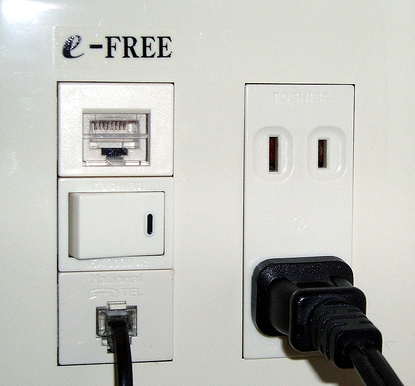
Digital Rights have long been recognized as crucial to development and growth. Having a right to an internet connection is a vital component of making the freedom of expression real and meaningful. Both rights are secured in Article 19 of the Universal Declaration of Human Rights, but the full implementation of these rights remains rare.
Access to digital resources online is also crucial to global knowledge transfers, from the north to the south. This was acknowledged in the Millennium Development Goals declaration in 2000 already, with a specific target in its 8th goal: “In cooperation with the private sector, make available the benefits of new technologies, especially information and communications.”
We are starting to see more and more initiatives by various countries to broaden this access, particularly broadband penetration. Finland recently declared broadband access a right. In practice this means that internet providers will have to extend the internet network in Finland to make sure that every citizen has access at a reasonable cost.
While many assume that it is because Finland is a new technology hub (it’s the country that brought us Nokia, after all), it may also simply be a way to catch up with other OECD countries that have higher broadband penetration rates.
In Brazil, on the other hand, residents in one of the biggest slums in Rio de Janeiro, Rocinha, will get free wireless access. It seems fair to ask whether free wireless access is really a necessity if the majority of the population doesn’t even have electricity, but Rocinha, in fact, is populated by middle class and lower middle class citizens.
By providing free wireless to the middle classes, Brazil is trying to “connect” them to the rest of the world and to ensure that the growing population of Brazil will be informed and connected. Brazil is providing them the tools for their own development.
Even if these measures are there to “catch up” with the rest of the world, particularly countries like the Netherlands or Switzerland, we should still encourage other countries in the world, even the ones with high broadband penetration rates, to follow the Brazilo-Finnish lead on providing free or low cost internet access to the population.
Only a serious effort to bring the ICT revolution to the masses will allow Digital Rights to become more than a virtual reality.


One reply on “Digital Rights Progress”
Check out the ISN’s resources on Broadband Internet Access, such as The Internet in the South Caucasus or Public Diplomacy 2.0. See also this AFP article on broadband booms in Asia and the role of regulators.